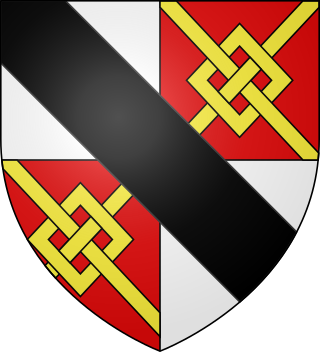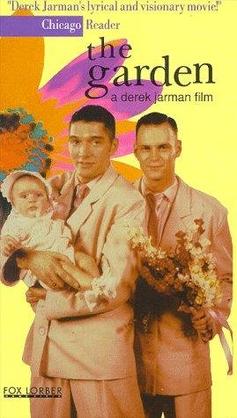
Edward II, also known as Edward of Caernarfon or Caernarvon, was King of England from 1307 until he was deposed in January 1327. The fourth son of Edward I, Edward became the heir to the throne following the death of his older brother Alphonso. Beginning in 1300, Edward accompanied his father on campaigns in Scotland, and in 1306 he was knighted in a grand ceremony at Westminster Abbey. Edward succeeded to the throne the next year, following his father's death. In 1308, he married Isabella of France, the daughter of the powerful King Philip IV, as part of a long-running effort to resolve the tensions between the English and French crowns.

Isabella of France, sometimes described as the She-Wolf of France, was Queen of England as the wife of King Edward II, and de facto regent of England from 1327 until 1330. She was the youngest surviving child and only surviving daughter of Philip IV of France and Joan I of Navarre. Isabella was notable in her lifetime for her diplomatic skills, intelligence, and beauty. She overthrew her husband, becoming a "femme fatale" figure in plays and literature over the years, usually portrayed as a beautiful but cruel and manipulative figure.

Piers Gaveston, 1st Earl of Cornwall was an English nobleman of Gascon origin, and the favourite of Edward II of England.

Edmund Fitzalan, 2nd Earl of Arundel was an English nobleman prominent in the conflict between King Edward II and his barons. His father, Richard Fitzalan, 1st Earl of Arundel, died in 1302, while Edmund was still a minor. He, therefore, became a ward of John de Warenne, Earl of Surrey, and married Warenne's granddaughter, Alice. In 1306 he was styled Earl of Arundel, and served under Edward I in the Scottish Wars, for which he was richly rewarded.

Roger Mortimer, 3rd Baron Mortimer of Wigmore, 1st Earl of March, was an English nobleman and powerful Marcher Lord who gained many estates in the Welsh Marches and Ireland following his advantageous marriage to the wealthy heiress Joan de Geneville, 2nd Baroness Geneville. Her mother was of the Royal House of Lusignan. In November 1316, he was appointed Lord Lieutenant of Ireland. He was imprisoned in the Tower of London in 1322 for having led the Marcher lords in a revolt against King Edward II in what became known as the Despenser War.

Edmund of Woodstock, 1st Earl of Kent, whose seat was Arundel Castle in Sussex, was the sixth son of King Edward I of England, and the second by his second wife Margaret of France, and was a younger half-brother of King Edward II. Edward I had intended to make substantial grants of land to Edmund, but when the king died in 1307, Edward II refused to respect his father's intentions, mainly due to his favouritism towards Piers Gaveston. Edmund remained loyal to his brother, and in 1321 he was created Earl of Kent. He played an important part in Edward's administration as diplomat and military commander and in 1321–22 helped suppress a rebellion.

The Troublesome Reign and Lamentable Death of Edward the Second, King of England, with the Tragical Fall of Proud Mortimer, known as Edward II, is a Renaissance or early modern period play written by Christopher Marlowe. It is one of the earliest English history plays, and focuses on the relationship between King Edward II of England and Piers Gaveston, and Edward's murder on the orders of Roger Mortimer.

Hugh le Despenser, sometimes referred to as "the Elder Despenser", was for a time the chief adviser to King Edward II of England. He was created a baron in 1295 and Earl of Winchester in 1322. One day after being captured by forces loyal to Sir Roger Mortimer and Edward's wife, Queen Isabella, who were leading a rebellion against Edward, he was hanged and then beheaded.

Hugh Despenser, 1st Baron Despenser, also referred to as "the Younger Despenser", was the son and heir of Hugh Despenser, Earl of Winchester, and his wife Isabel Beauchamp, daughter of William Beauchamp, 9th Earl of Warwick. He rose to national prominence as royal chamberlain and a favourite of Edward II of England. Despenser made many enemies amongst the nobility of England. After the overthrow of Edward, he was eventually charged with high treason and ultimately hanged, drawn and quartered.

The Garden is a 1990 British arthouse film directed by Derek Jarman and produced by James Mackay for Basilisk Communications, in association with Channel 4, British Screen, and ZDF. The film is loosely based on the story of Christ's crucifixion, except the figure of Christ is replaced with a gay male couple. The film has been seen as an allegory of the suffering gays were going through during the AIDS crisis and their ostracism by most of society. The film was entered into the 17th Moscow International Film Festival.

John of Brittany, 4th Earl of Richmond, was an English nobleman and a member of the Ducal house of Brittany, the House of Dreux. He entered royal service in England under his uncle Edward I, and also served Edward II. On 15 October 1306 he received his father's title of Earl of Richmond. He was named Guardian of Scotland in the midst of England's conflicts with Scotland and in 1311 Lord Ordainer during the baronial rebellion against Edward II.
Andrew James Tiernan is a British actor and director.

Edward II of England has been portrayed in popular culture a number of times.
Edward The King is a 2008 two-act play by American playwright David Brendan Hopes. The play is an adaptation of Christopher Marlowe's play Edward II, which in turn is a dramatization of the real-life story of Edward II of England.
Isabella de Beaumont, was a prominent noblewoman allied to Isabella of France during the reign of Edward II of England.
The London uprising was a major event of the 1326 Invasion of England. Isabella of France, the wife of King Edward II, took the City of London, the principal city of the Kingdom of England, after her husband the King abandoned the Tower and fled to the west.
The Despenser War (1321–22) was a baronial revolt against Edward II of England led by the Marcher Lords Roger Mortimer and Humphrey de Bohun. The rebellion was fuelled by opposition to Hugh Despenser the Younger, the royal favourite. After the rebels' summer campaign of 1321, Edward was able to take advantage of a temporary peace to rally more support and a successful winter campaign in southern Wales, culminating in royal victory at the Battle of Boroughbridge in the north of England in March 1322. Edward's response to victory was his increasingly harsh rule until his fall from power in 1326.
Plantagenet is a three-series sequence of BBC Radio 4 radio plays by the British dramatist Mike Walker, broadcast in the Classic Serial strand, based on the account of the Plantagenet dynasty in Holinshed's Chronicles. Each series consisted of three weekly episodes, the first premiering from 14 February 2010, the second from 29 May 2011 and the third from 1 April 2012.

Isabella of France was Queen of England and the daughter of Philip IV of France. Sometimes called the "She-Wolf of France", she was a key figure in the rebellion which deposed her husband, Edward II of England, in favor of their eldest son Edward III. This event, as well as Isabella's affair with Roger Mortimer and Edward II's relationships with Piers Gaveston and Hugh Despenser the Younger, have prompted Isabella's portrayal multiple times in literature and visual media.
Lessons in Love and Violence is an opera with music by George Benjamin and libretto by Martin Crimp. The opera, which is based on the story of King Edward II and Piers Gaveston, was premiered at the Royal Opera House London on 10 May 2018, conducted by the composer and directed by Katie Mitchell. The opera was a co-production with Dutch National Opera, Hamburg State Opera, Opéra de Lyon, Lyric Opera of Chicago, Gran Teatre del Liceu, Barcelona, and Teatro Real, Madrid.













